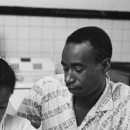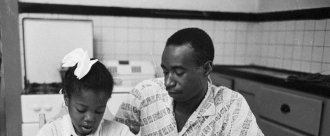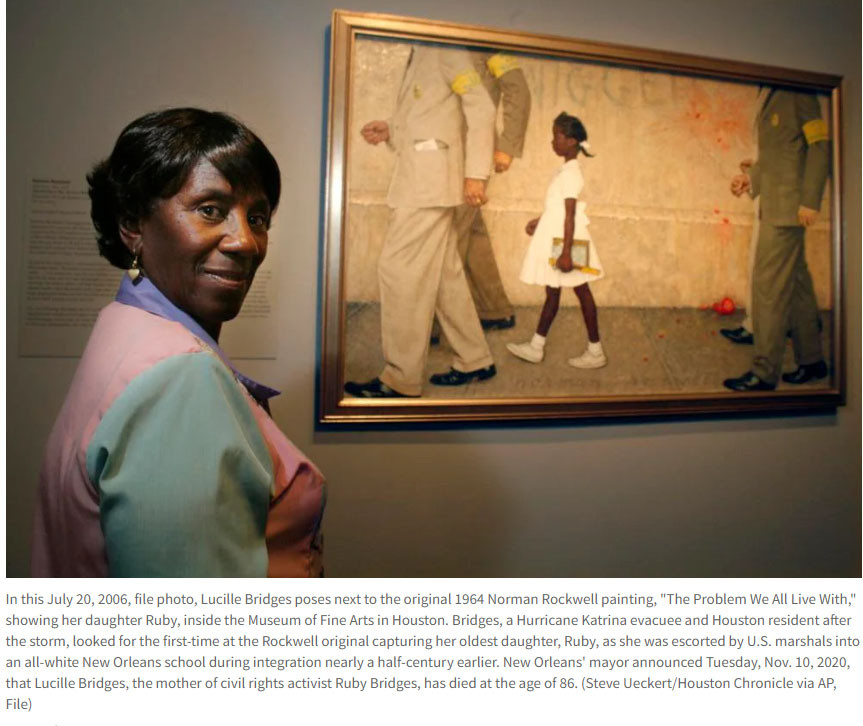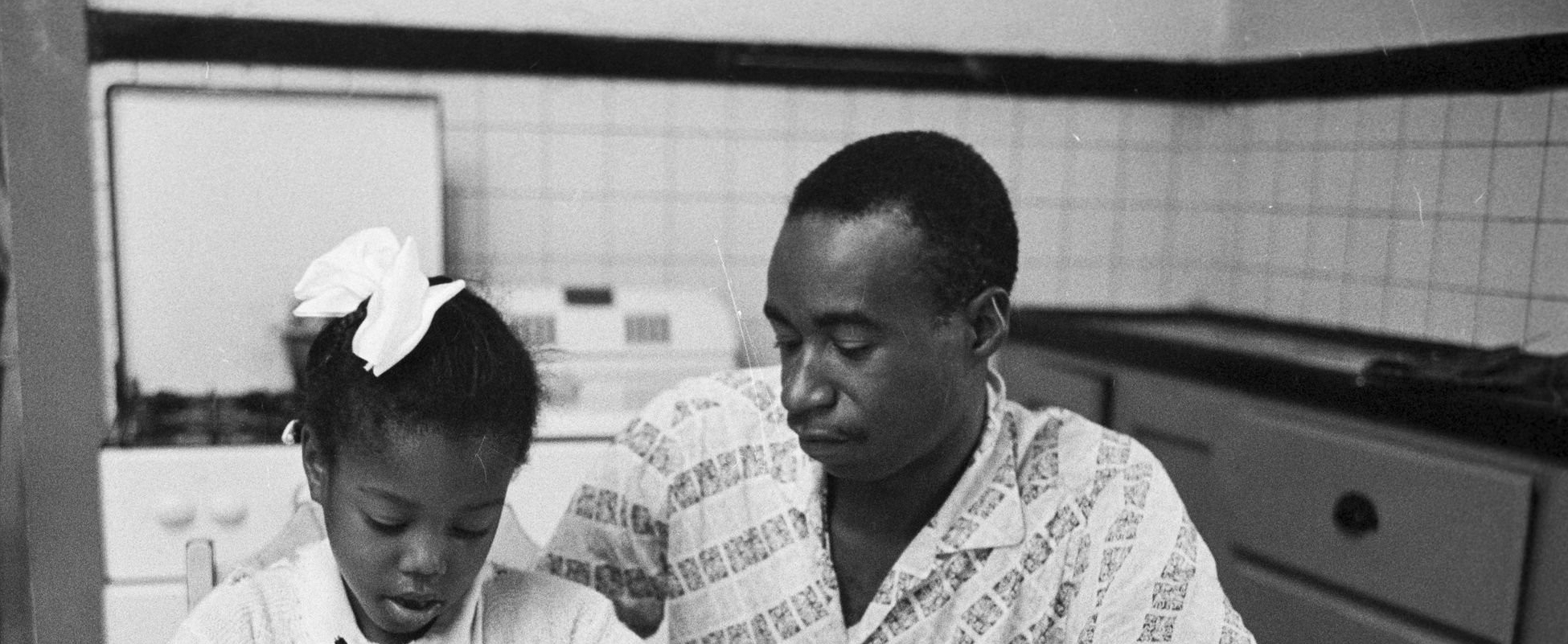Ruby Bridges First Day of School Changed History
The footprints of a child are small but on November 14, 1960, six-year-old Ruby Bridges walked with purpose as she became the first African American student to integrate an elementary school in the South. This venture leads to the advancement of the Civil Rights Movement and created a pathway for further integration across the southern parts of the U.S.
Before Ruby could crawl, the monumental court ruling in Brown V. Board of Education case (1954) had transpired in favor of ending segregation in public schools. There was resistance along the southern lines. Although the Supreme Court deemed segregation in public schooling was unconstitutional, integration was not being practiced in the South. In 1959, Ruby Bridges started her educational journey at a segregated kindergarten in New Orleans. A year later, the federal court ordered Louisiana to desegregate its public institutions of education. The school district created an entrance exam, to test if African American students were capable to withstand the same level of academics as their White counterparts. Along with five other Black students, Ruby passed the test.
Like all concerned parents, Abon and Lucille Bridges were apprehensive about the act of moving their small child into an all-White school. With the spirit of aggression and lack of understanding in the air, little Ruby’s safety was of utmost importance. Her well-being was the main reason for the hesitance in Abon’s mind. It was Ruby’s mother who favored the move to take place on the premise that her child will receive an education and opportunities that were once denied to her before.
November 14, 1960, six-year-old Ruby Bridges walked with purpose as she became the
first African American student to integrate an elementary school in the South.
The decision was made, but there was plenty of red tape from the school district that yielded the steps towards change. At last, early Monday morning, Ruby, alongside her mother, took her first steps into victory over segregation. This was no ordinary first day of school; they were met with great adversity. Mobs of people chanted and shouted at Ruby and her mother. The only things between the rage of the people and the young girl were barricades clearing the pathway and the cops that escorted her in and surrounded the building. After Ruby entered William Frantz Elementary School, mothers of the other children barged in and ripped their children out from their classes; over 500 children walked out that day. For the first year, it was just a class of one. Ruby alone was taught by the only teacher willing, Mrs. Barbara Henry. Ruby had perfect attendance that year.
Other complications trickled down to her family; Abon lost his job and Lucille was denied purchasing at local grocery stores. Her grandparents were evicted from their farm where they lived for 25 years. Sacrifices through generations did not alter the destined path to integration. Eventually, more African American students enrolled in the same school and Bridges’ legacy still graced the hallways as Ruby’s four nieces also went to William Frantz Elementary. As an adult, Mrs. Bridges continues to live in New Orleans and works in schools around the country, encouraging the youth. She inspired a great work of art by Norman Rockwell, “The problem we all live with,” depicting Ruby as a little girl in mid-stride changing the course of history.
- By Betti Halsell, Contributing Writer
Published November 21, 2019
Before Ruby could crawl, the monumental court ruling in Brown V. Board of Education case (1954) had transpired in favor of ending segregation in public schools. There was resistance along the southern lines. Although the Supreme Court deemed segregation in public schooling was unconstitutional, integration was not being practiced in the South. In 1959, Ruby Bridges started her educational journey at a segregated kindergarten in New Orleans. A year later, the federal court ordered Louisiana to desegregate its public institutions of education. The school district created an entrance exam, to test if African American students were capable to withstand the same level of academics as their White counterparts. Along with five other Black students, Ruby passed the test.
Like all concerned parents, Abon and Lucille Bridges were apprehensive about the act of moving their small child into an all-White school. With the spirit of aggression and lack of understanding in the air, little Ruby’s safety was of utmost importance. Her well-being was the main reason for the hesitance in Abon’s mind. It was Ruby’s mother who favored the move to take place on the premise that her child will receive an education and opportunities that were once denied to her before.
November 14, 1960, six-year-old Ruby Bridges walked with purpose as she became the
first African American student to integrate an elementary school in the South.
The decision was made, but there was plenty of red tape from the school district that yielded the steps towards change. At last, early Monday morning, Ruby, alongside her mother, took her first steps into victory over segregation. This was no ordinary first day of school; they were met with great adversity. Mobs of people chanted and shouted at Ruby and her mother. The only things between the rage of the people and the young girl were barricades clearing the pathway and the cops that escorted her in and surrounded the building. After Ruby entered William Frantz Elementary School, mothers of the other children barged in and ripped their children out from their classes; over 500 children walked out that day. For the first year, it was just a class of one. Ruby alone was taught by the only teacher willing, Mrs. Barbara Henry. Ruby had perfect attendance that year.
Other complications trickled down to her family; Abon lost his job and Lucille was denied purchasing at local grocery stores. Her grandparents were evicted from their farm where they lived for 25 years. Sacrifices through generations did not alter the destined path to integration. Eventually, more African American students enrolled in the same school and Bridges’ legacy still graced the hallways as Ruby’s four nieces also went to William Frantz Elementary. As an adult, Mrs. Bridges continues to live in New Orleans and works in schools around the country, encouraging the youth. She inspired a great work of art by Norman Rockwell, “The problem we all live with,” depicting Ruby as a little girl in mid-stride changing the course of history.
- By Betti Halsell, Contributing Writer
Published November 21, 2019


 Kathy Pinna
Kathy Pinna 


